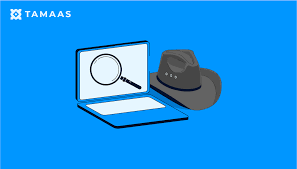Egyptian Arabic, or "Masri" (مصري), is one of the most widely spoken Arabic dialects and is known for its unique charm and expressive style. It's the everyday language of millions of Egyptians and is famous worldwide, thanks in part to Egyptian cinema, music, and the rich cultural heritage of the country. Whether you're traveling to Egypt, interacting with Egyptian friends, or just intrigued by the sound of the language, learning how to talk like an Egyptian can be both fun and rewarding. Here’s a guide to help you get started.
Why Talk Like an Egyptian?
-
Cultural Richness
Egyptian Arabic is an integral part of the vibrant Egyptian culture, which includes music, film, humor, and traditions. Speaking like an Egyptian opens doors to understanding these cultural expressions more deeply. -
Widespread Recognition
Egyptian Arabic is widely understood across the Arab world. Thanks to Egypt’s influence in media, movies, and music, Egyptians have become synonymous with their unique way of speaking. -
Fun and Expressive
The dialect is full of humor, warmth, and creativity. Egyptian Arabic is often described as musical, with an abundance of catchy expressions and a playful use of words.
Key Phrases to Start Speaking Like an Egyptian
To talk like an Egyptian, it’s essential to learn a few fundamental phrases and expressions. Here are some common ones:
- Hello / Hi: أهلاً (Ahlan) or السلام عليكم (As-salamu alaykum)
- How are you?: إزايك؟ (Ezayak?) — for a male, or إزايكِ؟ (Ezayek?) — for a female
- I’m good, thank you: كويس، شكراً (Kwayyes, shukran)
- What’s up?: إيه الأخبار؟ (Eh el akhbar?)
- Goodbye: مع السلامة (Ma’a el-salama)
- Please: من فضلك (Min fadlak) — for a male, or من فضلكِ (Min fadlik) — for a female
- Thank you: شكراً (Shukran)
- Yes: أيوه (Aywa)
- No: لأ (La’a)
By starting with these basic phrases, you'll be able to engage in casual conversations and begin to sound more like a native speaker.
Understand the Egyptian Accent and Pronunciation
Egyptian Arabic has some unique phonetic characteristics that set it apart from other Arabic dialects. Here are some key points to consider:
-
The letter "ج" (Jeem)
In Egyptian Arabic, the letter "ج" is pronounced as a hard "g," so instead of saying "jameel" (meaning beautiful), Egyptians say "gamil". -
The letter "ق" (Qaf)
The letter "ق" is often pronounced as a glottal stop or as a soft "a" sound, depending on the region. In Egyptian Arabic, "ق" sounds more like the English "a," as in "Qahwa" (coffee) sounding like "ahwa." -
Endearing Expressions
Egyptians use a lot of terms of endearment in everyday conversations, which makes the language feel warm and friendly. Common ones include:- حبيبي (Habibi) – my dear (for male)
- حبيبتي (Habibti) – my dear (for female)
- يا روحي (Ya rouhi) – my soul (can be used for close friends or loved ones)
Master Some Famous Egyptian Expressions
Egyptians have a flair for dramatic and fun expressions that add life to conversations. Here are some of their favorite sayings:
-
حاجة تفرح (Haga tefrh)
Translation: "Something that makes you happy."
Used to describe something exciting or good. -
على كيفك (Ala kayfak)
Translation: "At your convenience" or "As you like."
This phrase is often used to show flexibility or agreement. -
إحنا في الهوا سوا (Ehna fi el hawa sawa)
Translation: "We’re in this together."
This phrase signifies unity, often used to express solidarity and teamwork. -
يلا بينا (Yalla beena)
Translation: "Let’s go!"
A common and energetic way to urge someone to start something or leave a place. -
أيوة كده (Aywa keda)
Translation: "Yes, like that!"
Used to express approval or enthusiasm for something, similar to saying "Exactly!" or "That's it!"
Egyptian Humor and Style
One of the best ways to talk like an Egyptian is to embrace the humor and unique style that Egyptians use in their language. Egyptians have a playful and often sarcastic sense of humor, which they incorporate into everyday interactions. Some ways they do this include:
- Using hyperbole: Egyptians often exaggerate to emphasize something. For example, instead of saying "I’m tired," they might say, "I’m dead from exhaustion!"
- Sarcasm: Egyptians love sarcasm. It’s a part of their way of teasing each other. You might hear something like, "You’re a genius!" when someone does something silly.
- Puns and wordplay: Egyptians enjoy making puns and playing with words, often turning mundane conversations into moments of humor.
Practice Makes Perfect: Speaking Like an Egyptian in Real Life
The key to mastering Egyptian Arabic and truly speaking like an Egyptian is practice. Here’s how you can start:
- Watch Egyptian Movies and TV Shows: This will help you get accustomed to the language's flow and rhythm. Classic films like "The Yacoubian Building" or comedy shows like "El Bernameg" are great places to start.
- Listen to Egyptian Music: Sing along with Egyptian artists like Amr Diab or Tamer Hosny to practice pronunciation and rhythm.
- Engage with Native Speakers: Find language exchange partners or speak with Egyptian friends to improve your conversational skills.
Conclusion: Speak Like an Egyptian and Enjoy the Fun
Speaking like an Egyptian is about more than just the words—it’s about embracing the warmth, humor, and expressiveness of Egyptian culture. Whether you're traveling to Egypt, meeting Egyptian friends, or just curious about how to talk like a local, learning the language opens the door to a rich cultural experience. So, practice your Ahlan and Yalla, and soon enough, you'll be talking like an Egyptian!



